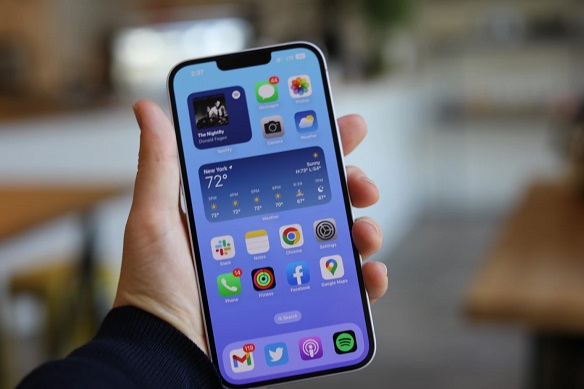
Apple on Monday released a new version of the iPhone and iPad’s operating systems to fix a vulnerability that hackers were exploiting in the wild, meaning they were taking advantage of it to hack Apple devices.
On the security update page, Apple wrote that it “is aware of a report that this issue may have been actively exploited.” This is the language Apple uses when someone alerts the company that they have observed hackers exploiting a bug against targets in the real world, as opposed to a vulnerability found by a researcher in a controlled environment, so to speak.
In this case, Apple credited an anonymous researcher for the discovery, and also thanked Citizen Lab “for their assistance.” Citizen Lab is a digital rights research group housed at the University of Toronto’s Munk School, known for exposing the abuse of government hacking tools such as those made by NSO Group.
Apple’s spokesperson Scott Radcliffe told TechCrunch that the company has nothing to add apart from what’s in the release notes. Bill Marczak, a senior researcher at Citizen Lab, said that he and his colleagues have no comments for now.
This latest bug was in WebKit, Apple’s browser engine that’s used in Safari, and a historically popular target for hackers, since it can open up access to the rest of the device’s data.
In 2021, Motherboard reported that in just the first four months of that year, Apple had patched seven bugs exploited in the wild, of which six were in WebKit, a number that experts considered high at the time.
Since then, things have improved. According to TechCrunch’s count of vulnerabilities, since January 2022, there have been nine bugs in iOS that “may have been actively exploited,” of which four in WebKit. The others were three in the kernel, the core component of the operating system; one in AppleAVD, the company’s audio and video decoding framework; and one in IOMobileFrameBuffer, a kernel extension.
As usual, the chances that an average iPhone user will be targeted with a zero-day like this one are slim, but you should still update your phone.
Ever since Elon Musk spent $44 billion on Twitter and laid off a large percentage of the company’s staff, there have been concerns about data breaches. Now it seems a security incident that predates Musk’s takeover is causing headaches. This week, it emerged that hackers released a trove of 200 million email addresses and their […]
The infrastructure behind Hive, one of the most prolific ransomware operations, has been seized by law enforcement agencies in the United States and Europe. Hive saw its dark web portal seized as part of a coordinated law enforcement action carried out by the U.S. Department of Justice, the FBI, Secret Service and several European government agencies, […]
A bug in a new centralized system that Meta created for users to manage their logins for Facebook and Instagram could have allowed malicious hackers to switch off an account’s two-factor protections just by knowing their phone number. Gtm Mänôz, a security researcher from Nepal, realized that Meta did not set up a limit of attempts when […]
Leave a Reply